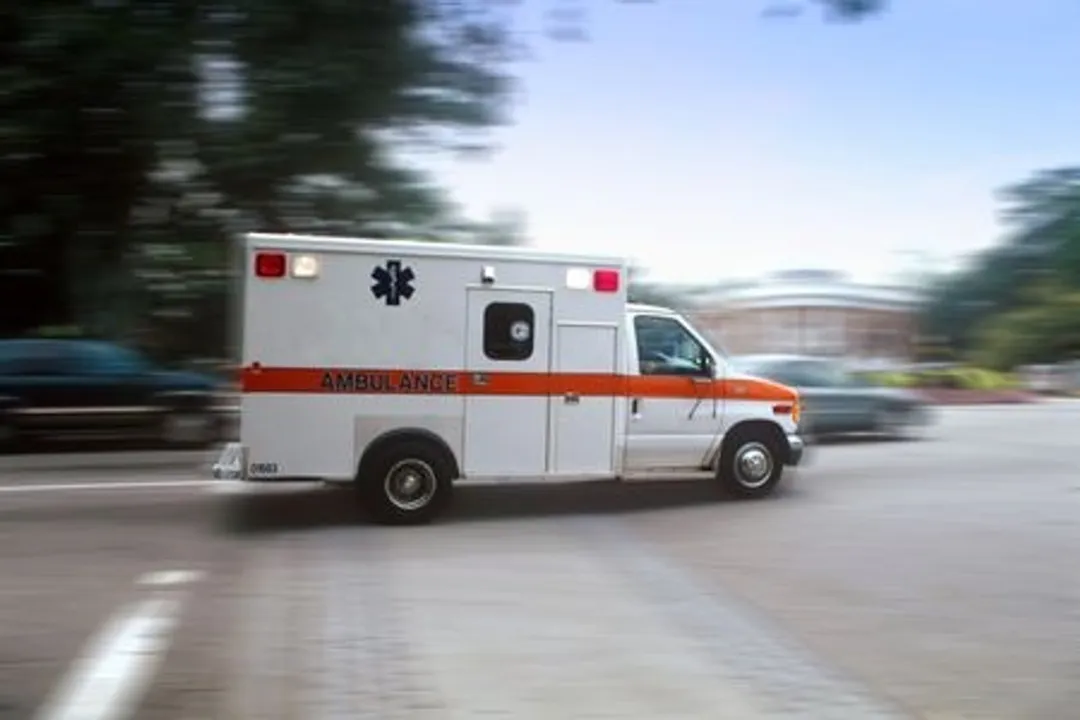Working in Critical Care Transport as a Nurse

Robert Young/123RF.com
There are a lot of different nursing specialties to consider. If you’re someone who thrives on working in a fast-paced environment and want to care for seriously ill or injured patients, working as a critical care transport nurse may be something to think about.
Critical care transport nurses work in both air and ground transport. For instance, they may work aboard a helicopter, small airplane or ground ambulance. Nurses may care for patients who need to be transported to a hospital from a remote location. They may also transport critically ill patients from one facility to another.
Responsibilities of Critical Care Transport Nurses
Patients requiring emergency transport are often unstable. Nurses in critical care transport treat a wide variety of patients including people involved in car accidents, falls, assaults and other types of trauma. Patients who also require immediate transport include those suffering from medical conditions, such as a stroke or heart attack.
A transport nurse needs to work fast to perform an assessment and provide immediate care to stabilize the patient. Nurses monitor vitals, perform EKGs and other quick diagnostic tests to determine the best course of treatment. Tasks performed by transport nurses include starting intravenous lines, administering medication and controlling bleeding. Life-saving interventions, such as intubation and CPR are also sometimes needed.
Training and Education
Critical care transport nurses must have advanced skills and certifications. In addition to being licensed as a registered nurse, some companies prefer to hire nurses with a BSN degree.
Most critical care transport positions require nurses to have certain certifications, such as advanced cardiac life support, pediatric advanced life support and neonatal resuscitation. Some companies may also prefer to hire nurses who also hold an EMT or paramedic certification.
The Board of Certification for Emergency Nursing also offers certifications, which can increase your marketability. There are a few different options available. Nurses who primary work in air transport, should consider becoming a certified flight registered nurse. Those who do ground transport may want to pursue the certified registered nurse credential.
Additional requirements may vary depending on the company you work for. For instance, air transport companies may have additional requirements including weight restrictions due to safety concerns.
Opportunities and Salary
Most critical care transport nurses work for medical centers or ground ambulance companies. Air ambulance companies also hire critical care transport nurses, although positions may be harder to come by.
Because working in critical care transport can be exciting, it is a sought after job and competition can be tough. The more credentials and experience you have the better your chances are of landing a position.
Salaries for critical care transport nurses may vary based on experience, credentials and geographic area. According to Salary.com, currently, the average salary for transport nurses in the United States is about $72,000 a year.
Pros and Cons
If you are considering working in critical care transport, it may help to weigh the pros and cons. On the positive side, critical care transport nurses play a crucial role in saving people’s lives. At the end of a long workday, it can be rewarding to know you made a difference.
Every day may be different in the life of a critical care transport nurse, which can keep the job fresh and interesting. If you enjoy the adrenaline rush of dealing with emergency situations, critical care transport may be a good choice.
On the flip side, the work may be physically demanding. Lifting patients, carrying equipment and crouching over in an ambulance or helicopter is a routine part of the job. Long shifts, such as 12 or 24 shifts, may make for a long work day.
While the work can be gratifying, it may also be emotionally draining. Critical care transport nurse witness tragic situations. Although they are focused on providing medical care, nurses are still human and situations can be heartbreaking.
References
The Board of Certification for Emergency Nursing. Get Certified. https://www.bcencertifications.org/Get-Certified/CTRN.aspx Accessed June 2015.
Salary. RN Flight Transport Salaries. http://www1.salary.com/Staff-Nurse-RN-Flight-Transport-Salary.html Accessed June 2015.
Related Posts
